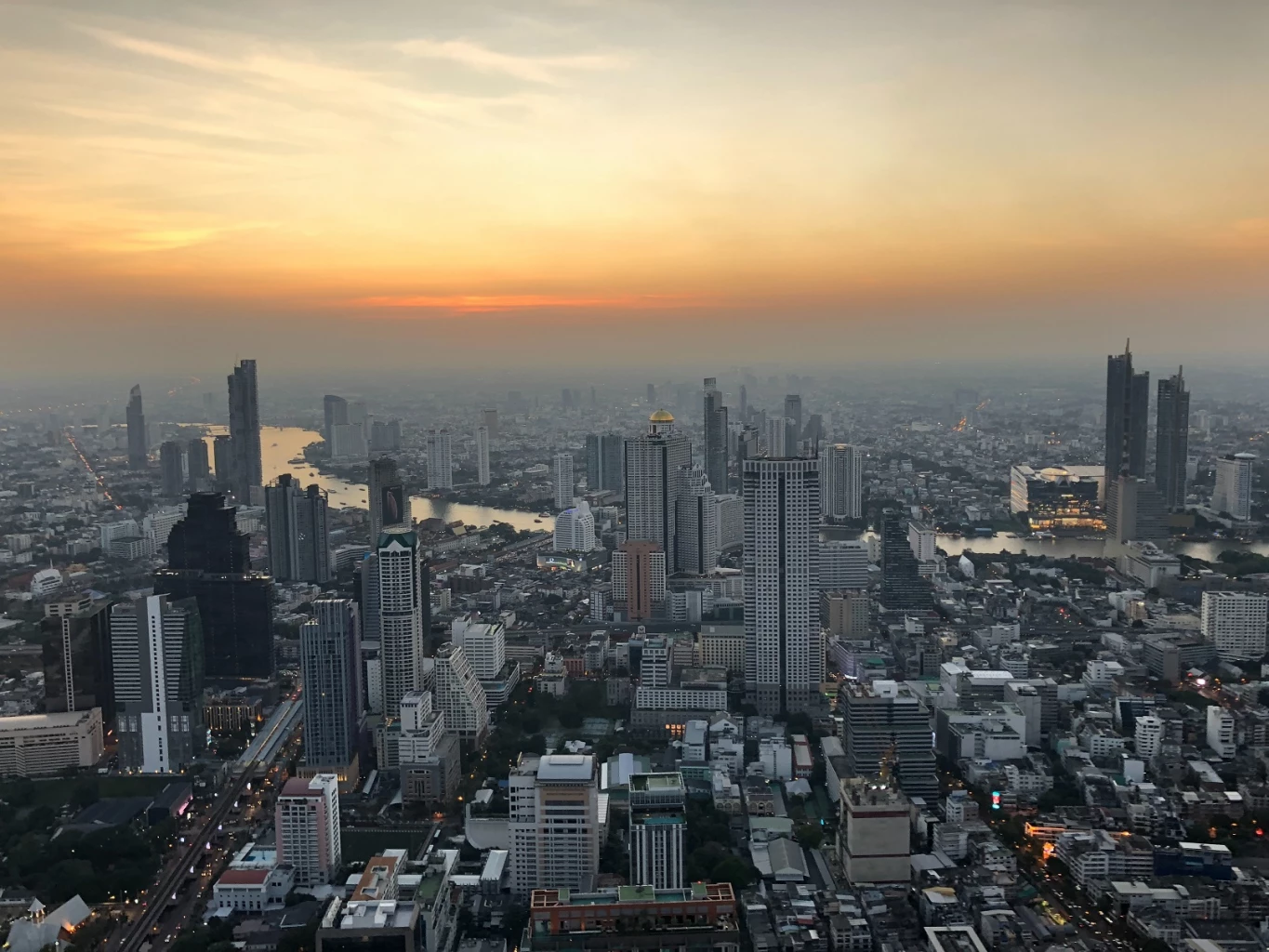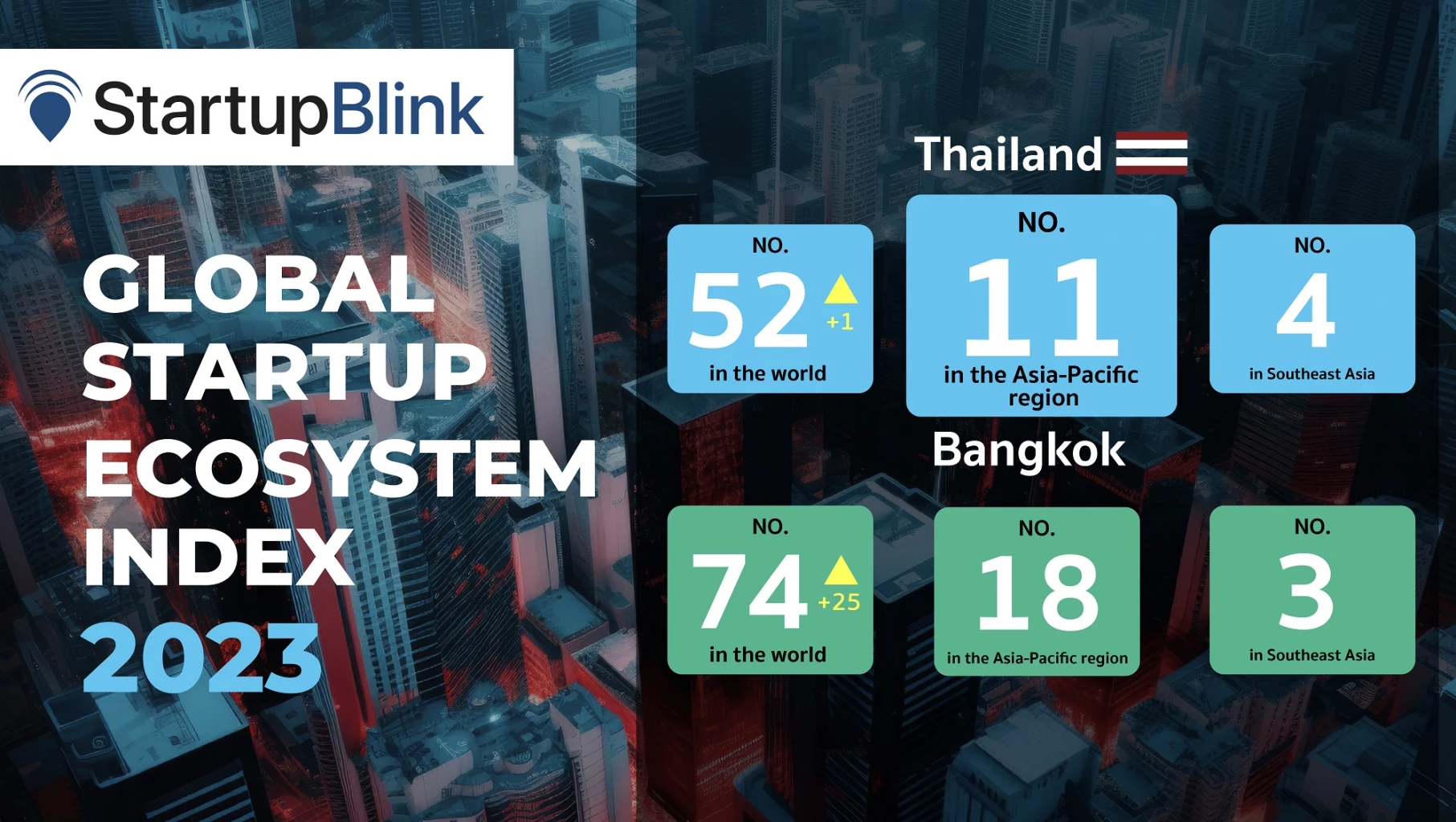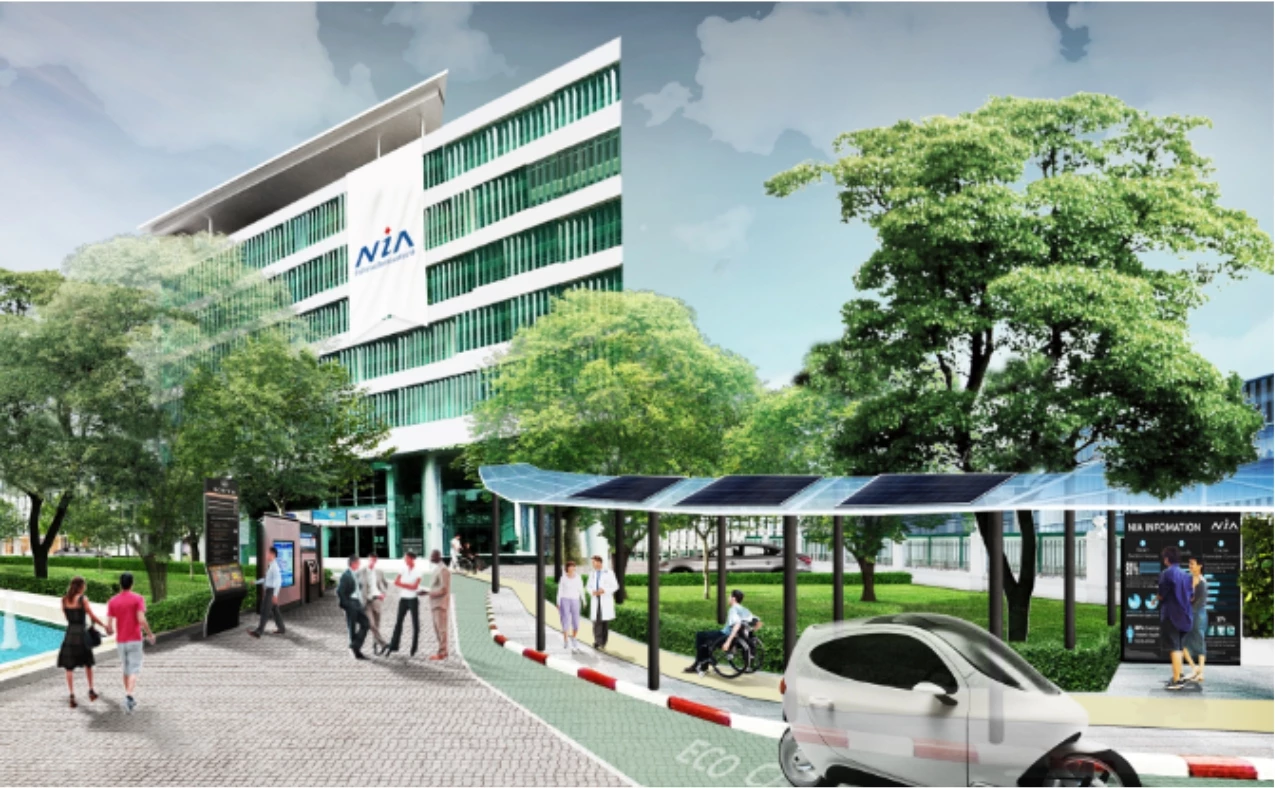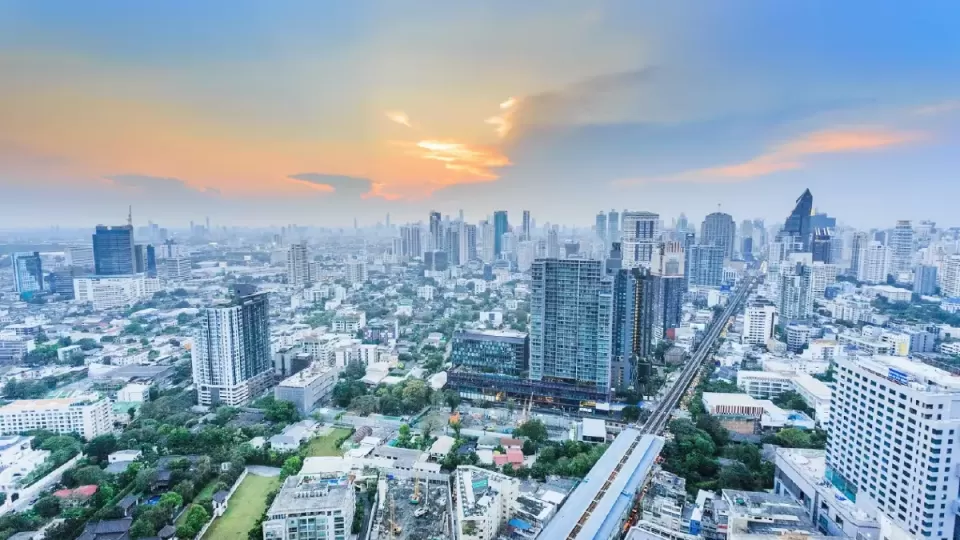July 6, 2023
BANGKOK – Bangkok has made a leap of 25 spots to reach the 74th position, surpassing Kuala Lumpur. Chiang Mai, Phuket, and Pattaya have also been listed in the global startup cities chart.
The National Innovation Agency (Public Organization) or NIA, under the Ministry of Higher Education, Science, Research, and Innovation, announced the findings of the Global Startup Ecosystem Index 2023.
The report, compiled by StartupBlink, a renowned global startup ecosystem information hub, has evaluated and ranked the 100 best countries and 1,000 best cities based on their respective startup ecosystems.

Overall, this year Thailand has secured the 52nd position globally, climbing one spot from the previous year.
Chiang Mai, Phuket, and Pattaya have also made their presence known in the global startup ecosystem rankings, securing 591st, 640th, and 849th positions respectively within the top 1,000 cities.

Pun-Arj Chairatana, NIA Executive Director expressed delight regarding the inclusion of Thailand’s innovation and startup industry in the Global Startup Ecosystem Index 2023 published by StartupBlink.

Pun-arj Chairatana, Executive Director of the National Innovation Agency (Public Organization) or NIA
He said, “Being ranked 52nd among countries with the best startup ecosystems worldwide is a testament to Thailand’s progress in fostering an environment conducive to startups and innovation. Thailand has moved up one position from the previous year, placing it as the fourth-ranked country in the Asean region after Singapore (6th), Indonesia (41st), and Malaysia (43rd), followed by Vietnam (58th), while the Philippines is ranked 59th.”
Bangkok has emerged as the leading startup hub in Thailand. In 2022, the city experienced a remarkable surge, advancing 25 spots to secure the 74th position globally. This achievement surpassed Kuala Lumpur, Malaysia, which holds the 87th rank, and positioned Bangkok as the third-ranked city within the Asean region.
Notably, Bangkok’s startup ecosystem has excelled in the transportation industry, maintaining its impressive standing at 43rd place worldwide.
In addition to Bangkok’s thriving startup scene, three other provinces in Thailand have also gained recognition by securing positions in the top 1,000 cities with the best startup ecosystems.
Chiang Mai holds the 591st spot, followed closely by Phuket at 640th, while Pattaya, another notable province, is ranked at 849th.”
The StartupBlink website utilizes various key factors in its evaluation of startup ecosystems. These include:
1) The quantitative factors encompass several key metrics, including the count of startups, the number of investors, the quantity of co-working spaces, the number of accelerators, and the frequency of startup-focused networking events.
2) The quality of startups and facilities is determined by various factors, such as the level of private sector investment in startups, the presence of research and development centres, the traction and user base of startups, the number of branches belonging to multinational companies, the size of the workforce, the presence and impact of unicorns, exits, and pantheon ventures, the number of globally influential startups, the number of global startup activities, and the number and value of technology sector securities.
3) The business environment comprises various factors, including diversity, speed, price, and Internet usage freedom indexes. It also takes into account research investment, availability of service technology, proficiency in English, passport influence, provision of visas to foreign startups, corporate tax rates, labour laws that are favourable to startups, the fraud perception index, and the presence of leading universities.
Since 2016, the promotion of startups has emerged as a crucial strategic policy within Thailand’s economic reform agenda, with the NIA taking the lead in promoting the country’s innovation systems and startup ecosystem.
Thailand’s appeal extends beyond being a popular tourist destination; it also attracts digital nomads, many of whom choose to reside in cities like Chiang Mai and Bangkok.
This influx of digital nomads fosters international knowledge connections, leading to business opportunities and a diverse range of projects to enter the country.
With this in mind, the NIA is dedicated to transforming Thailand into a thriving hub for startups and investors from across the globe. To facilitate this, the NIA has initiated the establishment of Global Startup Hubs in three key areas: Bangkok, Chiang Mai, and the Eastern Special Development Zone (EEC).
These hubs aim to provide comprehensive support and resources to startups and investors, both Thai and foreign, enabling them to conduct business and investments efficiently in Thailand.
The focus also lies in creating livable cities and enhancing the quality of life for urban residents. This is achieved by establishing a strong link between urban prosperity and rural development through the development of innovation districts or areas with significant potential for innovation and entrepreneurship.”

Yothi Medical Innovation District (YMID)
In Bangkok, four innovation districts have been established: Yothi Medical Innovation District (YMID), Cyber-Tech Innovation District, Ari Innovation District, and Kluaynamthai Innovation District (KIID). Similarly, Chiang Mai has seen the development of two innovation districts: Suandok Medical Innovation District (SMID) and Maejo Agriculture and Food Innovation District (MAID).
Additionally, in the EEC area near Pattaya, innovation districts such as Ban Chang Innovation District in Rayong Province have been established.”
While there may not be an established innovation district in Phuket at present, there are still initiatives and support for innovation in the region.
An example is the organization of the Open Innovation Road Show in the southern region. This event aims to provide support and funding opportunities for innovative entrepreneurs in the area. Furthermore, efforts are being made to establish a network of new-generation innovators and supporters of regional innovation development, known as the PIN (Pioneering Innovator Network).”
“Also, there are policies to attract foreign entrepreneurs and investors to conduct business and invest in Thailand. The Smart Visa program, a collaborative effort between NIA and BOI (Board of Investment), has been introduced to facilitate this objective.
The Smart Visa is specifically designed to encourage investment in knowledge-based enterprises and serves as a vital mechanism for driving the economy through innovation.
NIA stands as one of the agencies offering certification services to aspiring startups aiming to avail themselves of these privileges.”
“Over the past years, Thailand has witnessed the emergence of numerous unicorns, including Line Man, Wongnai, Flash Express, and Ascend Money.
Looking ahead, we anticipate the rise of even more unicorns in the coming years, as Thailand aspires to transform into a thriving startup nation.
This transformation necessitates collaboration from various sectors to foster innovation that addresses evolving needs and facilitates the adoption and expansion of innovative solutions.
Therefore, it becomes imperative to foster an innovation-oriented mindset among government agencies, private sector entities, civil society organizations, and the general public.
” By cultivating this mindset, Thai society can embrace innovation, proactively adapt to future transformations, and continues with a collaborative effort to make a meaningful change to the world,” said Pun-Arj.


